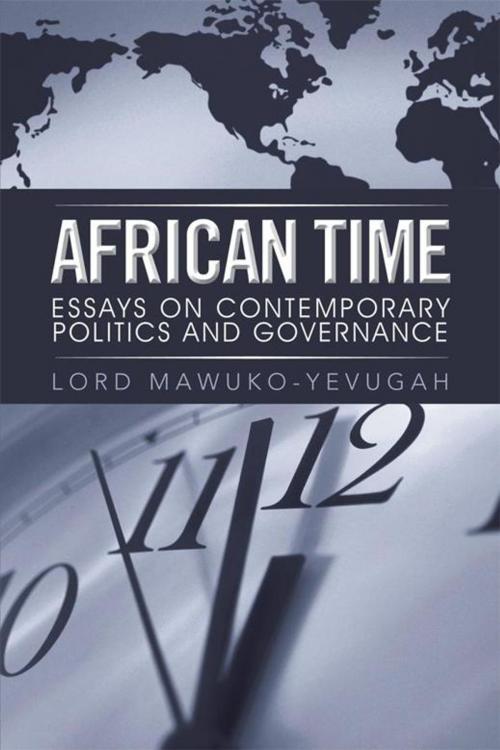African Time
Essays on Contemporary Politics and Governance
Nonfiction, Social & Cultural Studies, Political Science| Author: | Lord Mawuko-Yevugah | ISBN: | 9781481797498 |
| Publisher: | AuthorHouse UK | Publication: | June 7, 2013 |
| Imprint: | AuthorHouse UK | Language: | English |
| Author: | Lord Mawuko-Yevugah |
| ISBN: | 9781481797498 |
| Publisher: | AuthorHouse UK |
| Publication: | June 7, 2013 |
| Imprint: | AuthorHouse UK |
| Language: | English |
In this wide-ranging collection of essays, Mawuko-Yevugah explores the challenges of political reform and democratic governance in Africa at the beginning of the 21st Century, focusing largely on Ghanas experience. The inspiration for the title of the collection, AFRICAN TIME, comes from Kwame Nkrumahs pan-African optimism as well as from recent discourses around African Renaissance, Africas Century, Africa Rising, etc. At Ghanas founding in 1957, Nkrumah proclaimed: Our independence is meaningless unless it is linked up to the total liberation of the African continent. Today, from now on, there is a new African in the worldThat new African is ready to fight his own battles and show that after all, the black man is capable of managing his own affairs. That historic declaration, Mawuko-Yevugah argues, did not only set the tone and direction for Ghanas pan-African foreign policy but it has also made the country a reference point for Africas postcolonial tragedy in the form of political instability and economic decay. Exploring Ghanas recent strides in democratic consolidation within the context of fresh attempts to reinvent pan-Africanism and mainstream good governance on the continental development agenda, this book offers incisive, critical and a rare reflection on the changing landscape of contemporary African politics and governance through the eyes of a political journalist.
In this wide-ranging collection of essays, Mawuko-Yevugah explores the challenges of political reform and democratic governance in Africa at the beginning of the 21st Century, focusing largely on Ghanas experience. The inspiration for the title of the collection, AFRICAN TIME, comes from Kwame Nkrumahs pan-African optimism as well as from recent discourses around African Renaissance, Africas Century, Africa Rising, etc. At Ghanas founding in 1957, Nkrumah proclaimed: Our independence is meaningless unless it is linked up to the total liberation of the African continent. Today, from now on, there is a new African in the worldThat new African is ready to fight his own battles and show that after all, the black man is capable of managing his own affairs. That historic declaration, Mawuko-Yevugah argues, did not only set the tone and direction for Ghanas pan-African foreign policy but it has also made the country a reference point for Africas postcolonial tragedy in the form of political instability and economic decay. Exploring Ghanas recent strides in democratic consolidation within the context of fresh attempts to reinvent pan-Africanism and mainstream good governance on the continental development agenda, this book offers incisive, critical and a rare reflection on the changing landscape of contemporary African politics and governance through the eyes of a political journalist.















